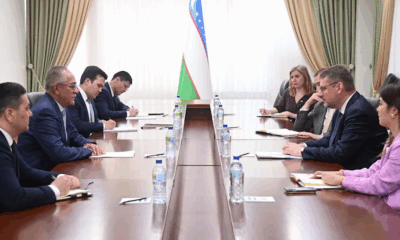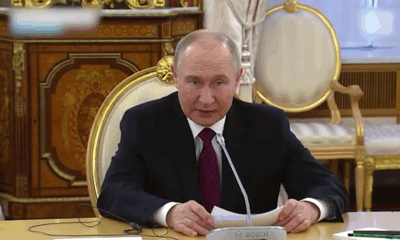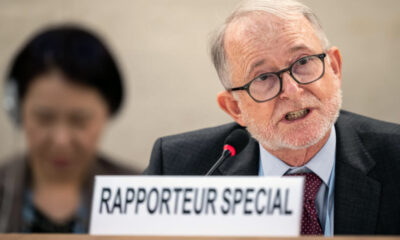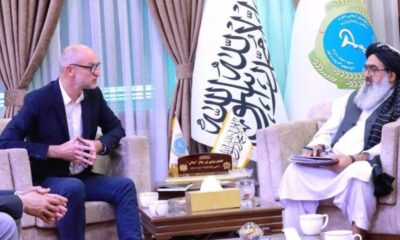Science & Technology
China launches 3rd and final space station component

China’s third and final module docked with its permanent space station Tuesday to further a more than decade-long effort to maintain a constant crewed presence in orbit, as its competition with the U.S. grows increasingly fierce.
The Mengtian module arrived at the Tiangong station early Tuesday morning, state broadcaster CCTV said, citing the China Manned Space agency.
Mengtian was blasted into space on Monday afternoon from the Wenchang Satellite Launch Center on the southern island province of Hainan. It was expected to take about 13 hours to complete the flight and docking mission, AP reported.
A large crowd of amateur photographers, space enthusiasts and others watched the lift-off from an adjoining beach.
Many waved Chinese flags and wore T-shirts emblazoned with the characters for China, reflecting the deep national pride invested in the space program and the technological progress it represents.
Mengtian, or “Celestial Dream,” joins Wentian as the second laboratory module for the station, collectively known as Tiangong, or “Celestial Palace.” Both are connected to the Tianhe core module where the crew lives and works.
Like its predecessors, Mengtian was launched aboard a Long March-5B carrier rocket, a member of China’s most powerful family of launch vehicles.
Tiangong is currently populated by a crew of two male and one female astronauts, according to the China Manned Space Agency.
Next year, China plans to launch the Xuntian space telescope, which, while not a part of Tiangong, will orbit in sequence with the station and can dock occasionally with it for maintenance.
Science & Technology
Saudi crown prince launches new company to develop AI technologies
U.S. President Donald Trump travels to Saudi Arabia this week, the first stop on his Gulf tour, and AI is expected to be a major discussion point during Tuesday’s joint Saudi-U.S. investment forum in Riyadh.
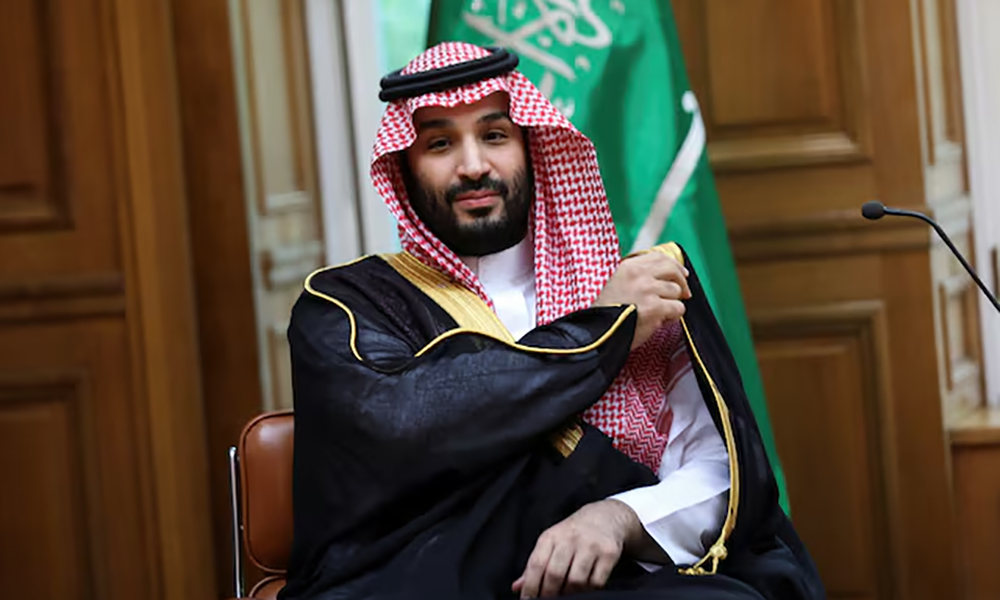
Crown Prince Mohammed bin Salman launched a new company to develop and manage artificial intelligence technologies in Saudi Arabia on Monday, a top priority of its economic diversification drive, Reuters reported.
U.S. President Donald Trump travels to Saudi Arabia this week, the first stop on his Gulf tour, and AI is expected to be a major discussion point during Tuesday’s joint Saudi-U.S. investment forum in Riyadh.
The kingdom, the world’s biggest crude exporter, is undergoing a significant economic and social transformation under its Vision 2030 programme which aims to wean the economy off its oil dependency.
It wants to develop AI technology and infrastructure – including data centres – and has ambitions to establish the kingdom as a global centre for AI, pitching itself as a prospective hub for AI activity outside the United States, read the report.
Chaired by bin Salman, Saudi Arabia’s de facto leader, the new company, Humain, will operate under the Public Investment Fund, and offer AI services and products, including data centres, AI infrastructure, cloud capabilities and advanced AI models, the state news agency reported.
Earlier this year, cloud software seller Salesforce (CRM.N), said that it planned to invest $500 million in Saudi Arabia related to artificial intelligence.
Science & Technology
Skype ends operations after 22 years of service
Microsoft acquired Skype in 2011 and says the decision is part of a strategy to focus on its other platform, Microsoft Teams.
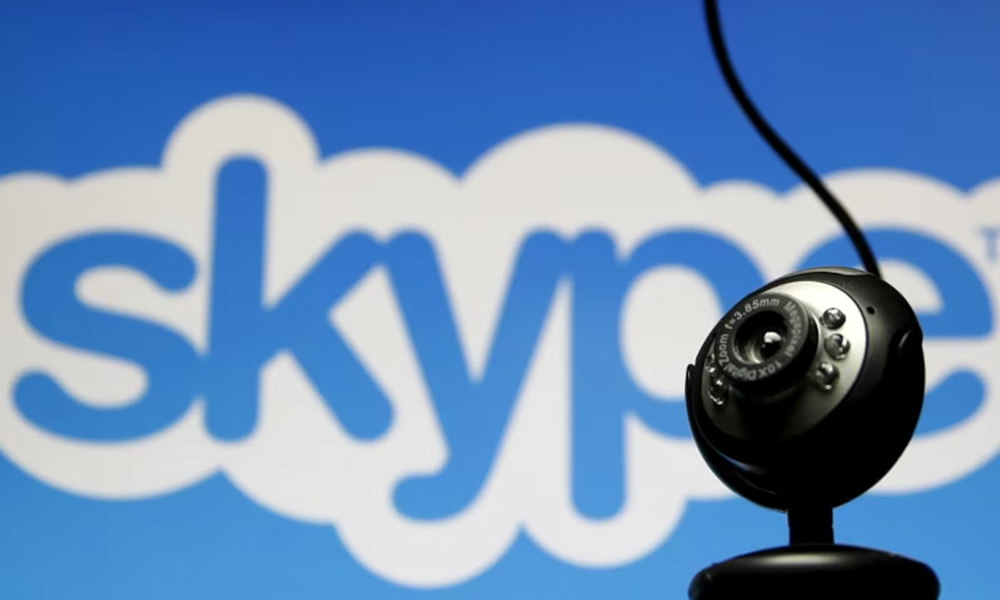
Skype officially shut down on Monday. The closure comes after nearly 22 years in operation, during which Skype became known for making international voice and video calls accessible and affordable for millions of people worldwide.
Microsoft acquired Skype in 2011 and says the decision is part of a strategy to focus on its other platform, Microsoft Teams.
Launched in 2003, Skype quickly became a revolutionary tool for free voice and video calls over the internet, amassing more than 300 million monthly users at its peak in the mid-2010s. The free platform changed how people communicated across borders, long before Zoom or FaceTime.
In 2011, Microsoft acquired Skype for $8.5bn, aiming to make it a central part of its communications strategy. But as competitors like WhatsApp, Zoom, and eventually Microsoft’s own Teams gained traction, Skype’s popularity faded.
On February 28, Microsoft said it would retire Skype on May 5 to streamline its services and prioritise Teams for communication and collaboration.
Microsoft has urged users to transition to Teams by visiting skype.com and utilising the “Start using Teams” feature. All Skype chats and contacts will remain accessible through Teams using the same login credentials.
Science & Technology
Apple moving to make most iPhones for US in India rather than China

Apple aims to make most of its iPhones sold in the United States at factories in India by the end of 2026, and is speeding up those plans to navigate potentially higher tariffs in China, its main manufacturing base, Reuters reported.
The U.S. tech giant is holding urgent talks with contract manufacturers Foxconn and Tata to achieve that goal, the person, who declined to be named as the planning process is confidential, said on Friday.
Apple and Foxconn did not immediately respond to requests for comment, while Tata declined to comment.
Apple sells over 60 million iPhones in the U.S. annually with roughly 80% of them made in China currently.
Prime Minister Narendra Modi has in recent years promoted India as a smartphone manufacturing hub, but higher duties on importing mobile phone parts compared to many other countries means it is still expensive for companies to produce in India.
For iPhones, manufacturing costs in India are 5-8% higher than in China, with the difference rising to as much as 10% in some cases, the source said.
Apple has already stepped up production in India to beat U.S. President Donald Trump’s tariffs, shipping some 600 tons of iPhones worth $2 billion to the United States in March. The shipments from India marked a record for both its contractors Tata and Foxconn, with the latter alone accounting for smartphones worth $1.3 billion, Reuters reported last week.
In April, the U.S. administration imposed 26% duties on imports from India, much lower than the more than 100% China was facing at the time. Washington has since paused most duties for three months, except for China.
Trump’s administration has since signalled openness to de-escalating the trade war between the world’s two largest economies that has raised fears of recession.
The Financial Times first reported about Apple’s plan on Friday.
As Apple diversifies its manufacturing beyond China, it has positioned India for a critical role. Foxconn and Tata, its two main suppliers there, have three factories in all, with two more being built.
-

 Regional5 days ago
Regional5 days agoIndia says military stations attacked by Pakistan drones and missiles
-

 Latest News5 days ago
Latest News5 days agoOne dead, dozens injured as powerful storm strikes Jalalabad, Afghanistan
-

 Latest News4 days ago
Latest News4 days agoEx-Afghan deputy speaker Qadeer back in Kenyan court for criminal case
-

 Health5 days ago
Health5 days agoJapanese charity Peshawar-Kai to resume leprosy treatment in Afghanistan
-

 Sport5 days ago
Sport5 days agoIndia suspends Indian Premier League T20 cricket tournament
-

 Latest News4 days ago
Latest News4 days agoPakistan says India launched attack on Afghanistan, India denies
-

 Latest News4 days ago
Latest News4 days agoMCC Chief: Afghan cadres sent to China for AI training
-

 World3 days ago
World3 days agoUS offers to help India and Pakistan start talks, G7 also urges dialogue


